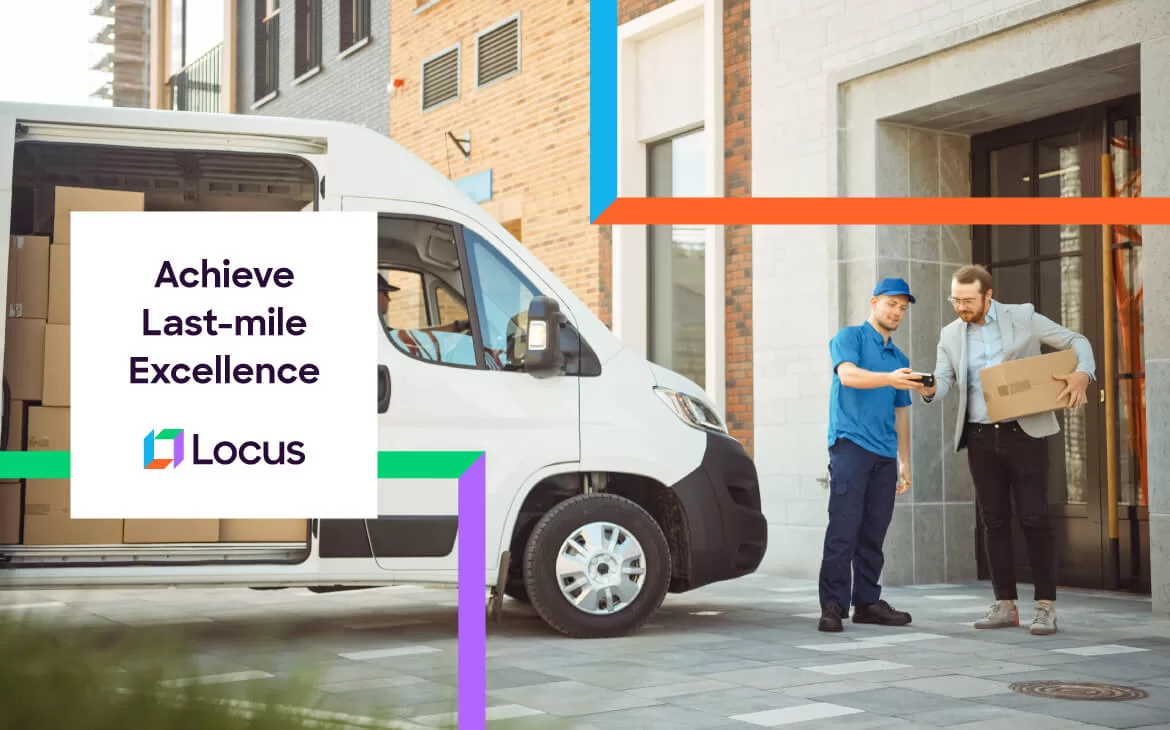Blog, E-Commerce, General
How Digitalization can Revolutionize Your B2B E-commerce Business
Apr 5, 2022
8 mins read

In 2023, an estimated 17 % of B2B sales are expected to be generated digitally. In 2019, this share was 13 %. – Statista, Share of US B2B Sales via E-commerce 2019-2023
The global B2B e-commerce market valuing US$14.9 trillion in 2020 is over 5 times that of the B2C market. – B2B E-commerce Report, 2021, Statista
B2B companies make up the other half of the global economy. An average consumer rarely factors the impact they have in their day-to-day lives. Often, they are the businesses that empower consumer-facing companies with a whole variety of goods and services.
And such companies, particularly the B2B e-commerce ones, have been growing at a steady and faster pace in recent years. We are living in an age where B2B buyers don’t have the time to extensively coordinate with logistics partners, business vendors, and supply chain professionals around standard processes like order fulfillment. With a majority of B2B business searches originating online, the order fulfillment process is undergoing a transformative change.
The new generation of B2B buyers, largely made up of millennials, are now looking for seamless, quick, efficient and transparent order fulfillment. Whenever they book new orders, cancel or reschedule them, they want a B2B e-commerce experience that is equivalent to B2C. These new wave demands and the COVID-19 pandemic have accelerated the adoption of digitalization.
Before making an investment to digitalize your B2B order fulfillment process, it is necessary to know how digitalization has transformed B2B e-commerce businesses.
4 ways digitalization has revolutionized B2B e-commerce
B2B buyers typically are expected to have a long-term relationship with other B2B e-commerce businesses. Hence, the importance attached to customer experience is high in B2B.
The key towards a successful B2B customer experience is seamless order fulfillment. Changing customer expectations and increasing complexity of orders have necessitated them to adopt digitalization. Find out the 4 ways that digitalization has revolutionized B2B e-commerce.
Enabling higher level of visibility

Before digitalization
Before digitalization, both B2B buyers and businesses would wait for hours or even days to get an update on the status of their orders.
After digitalization
After digitalization, B2B logistics businesses have become increasingly aware of their order fulfillment operations. With a few clicks into an e-commerce order fulfillment software, they can now understand the status of their order confirmations, on-time delivery performance, invoices, payments or anything related to order management through notifications in shorter time frames. And in some cases, even in real-time.
End-to-end last-mile tracking on orders is now possible while operating with multiple partners like logistics providers, forwarders, and express companies. Its shipment movement data helps businesses spot the inaccuracies or errors in order fulfillment and rectify them.
Example:
A wholesale business supplies meat to some of the restaurants regularly. As most restaurants want meat shipments daily, they are quite eager for visibility on when the meat will reach them.
Investments in technology like e-commerce order management software helps B2B businesses offer visibility into last-mile logistics factors like in-transit shipping, shipment exceptions, service level agreement (SLA) breaches etc. Timely notifications keep customers well-informed about the status of last-mile orders, thereby building trust for their business.
Improving flexibility in handling varied e-commerce orders
Before digitalization
Earlier, B2B e-commerce businesses were relying majorly on manual efforts to fulfill the varied order preferences of their customers. As customer expectations kept rising, it was difficult for businesses to quickly adapt and meet them efficiently with these processes. Simultaneously, their manual backend work also kept increasing, which made it even more difficult to build flexibility in handling various business orders.
After digitalization
With digitalization, B2B e-commerce businesses are now able to adapt their order fulfillment to changing customer demands. It has led them to focus on the faster and efficient delivery methods rather than relying on cumbersome, less efficient manual backend processes.
Example:
A brand supplies alcohol and beverages to retail outlets and restaurants regularly. The demand for alcohol products peaks during holidays. But there may be unexpected instances like reports of incoming tornadoes, lockdowns, cyclones, or heavy rainfall where the demand can rise suddenly. Flexibility in order fulfillment is a critical element for B2B e-commerce businesses to win customers.
With e-commerce order management software, B2B e-commerce businesses can optimize their order management based on customer preferences. It enables them to update delivery schedules or workflows based on last-minute changes like customers rescheduling orders.
Improves speed of order fulfillment
Before digitalization
Before digitalization, B2B e-commerce companies had a different approach with each buyer when it came to the speed of order fulfillment. They implemented traditional logistics efforts that were vastly ineffective and costly, thereby failing to fulfill the delivery promises.
After digitalization
Modern B2B buyers expect express deliveries from their B2B e-commerce businesses. They don’t want to close deals with businesses that are not serious about their order fulfillment promises. Like B2C buyers, they want businesses to consistently deliver their orders on time, and as promised.
By digitalizing order fulfillment processes, businesses can make their route planning smart and flexible. An e-commerce order management software with its artificial intelligence (AI) capabilities generates optimal routes after factoring all real-world constraints like time windows, capacity, traffic etc. Well-optimized routes help save time, and make deliveries faster at the highest level of efficiency.
Example:
A B2B e-commerce business supplies medical products to hospitals, medical rehab centers and drug stores. When there is a sudden rise of malaria, or dengue cases, these hospitals, rehab centers or drug stores will need more medicines. There will be an increased demand for medicines in such times.
The B2B e-commerce business that supplies them consistently fails to deliver their orders on time due to the sudden rise in order volumes, vehicle breakdowns and unexpected roadblocks. As a result, the business loses the trust of its customers.
By generating optimal routes, an e-commerce order management software helps B2B businesses improve their delivery speeds. It ensures they serve a maximum number of B2B buyers efficiently in a given time without burdening their existing resources. All of this goes towards establishing an improved customer experience with the businesses they work with, and gathering their trust in the process.
Minimizing order fulfillment costs
Before digitalization
Before digitalization, businesses found it difficult to minimize their order fulfillment costs. The major reason behind this was that businesses were unable to comprehensively track whether they were meeting their order fulfillment KPIs on the ground, relying more on manual data collection, calculation and updates.
After digitalization
By adopting digitalization, businesses are now able to analyze comprehensive and insightful data on their order fulfillment performance. The data analysis enables them to track inefficiencies and areas where they incurred high and unnecessary costs and rectify them.
Example:
A B2B business using e-commerce order management software finds out that it sends 70% of fleets to delivery areas that generate only 20% of total sales. Also, it finds out that 50% route deviations occur in delivery areas that contribute to 70% of sales.
With the above insights from an order management software, a B2B business can rightsize their fleet requirements and minimize empty miles. Its accurate analytics report route deviations, thereby having a check on delivery processes that need improvement.
Conclusion
US B2B E-commerce will reach $1.8 trillion and account for 17% of all B2B sales in the US by 2023. – Forrester Forecast, Jan 2019.
The COVID-19 pandemic has pushed B2B e-commerce businesses across the globe to sell their products online quickly and cost-effectively. To make your digital B2B sales successful, it is necessary to automate your order fulfillment process. As B2B decision-makers demand more convenience and automation, the need for digitalization will continue to surge.
Locus’ order management software automates order fulfillment, right from order capturing to post-fulfillment on a single, integrated platform. Its advanced automation capabilities helps B2B e-commerce businesses to schedule their deliveries, by adhering to SLAs while maintaining peak resource utilization. Its analytical insights on orders and real-world fleet tracking helps rectify their inefficiencies in order management, thereby reducing errors and inaccuracies.
Want to digitalize your order fulfillment processes for a better customer experience? Reach out to Locus for a demo now!
References
- https://www.statista.com/statistics/273104/us-b2b-e-commerce-share/
- https://www.statista.com/study/44442/statista-report-b2b-e-commerce/
- https://www.forrester.com/report/US-B2B-eCommerce-Will-Hit-18-Trillion-By-2023/RES136173

Related Tags:

Tech and Product
Locus Listed as Representative Vendor in 2022 Gartner® Market Guide for Supply Chain Network Design Tools
Locus innovates and enhances last-mile efficiencies for businesses across the globe with sustainable and futuristic tech. Read about Locus listed in Gartner.
Read more
Blog
How Japanese E-commerce Brands Can Overcome the Challenges in Last-Mile Deliveries
The last-mile delivery is the key to success in the eCommerce industry. Discover how Japanese eCommerce brands can overcome last-mile logistic challenges.
Read moreMOST POPULAR
EDITOR’S PICKS
SUBSCRIBE TO OUR NEWSLETTER
Stay up to date with the latest marketing, sales, and service tips and news


How Digitalization can Revolutionize Your B2B E-commerce Business